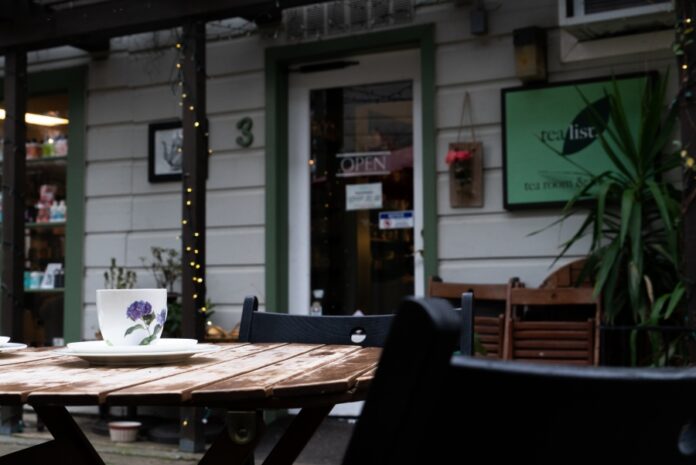Though hard to find, good tea exists in Davis
Finding good tea in Davis can be challenging. While there are boba shops around every corner and more seeming to open every day, finding unsweetened tea is difficult. Many tea drinkers have been disappointed after ordering hot tea at a café or restaurant, only to watch a flavorless tea bag float in a mug.
Why drink tea? With less caffeine, it’s a healthier alternative to coffee. Some tea may even lower the risk of cancer, heart disease and diabetes.
All tea comes from the Camellia sinensis plant, native to China and India. Different ways of processing the plant result in different types of teas, and the main types of tea are black, green, white, oolong and pu-erh. Anything else is technically not considered tea but herbal infusions or tisanes, such as beverages prepared with chamomile, lemongrass, osmanthus, mint, rooibos or other plants.
Andy Leung, a second-year biological systems engineer, buys all of his tea from Hong Kong and prefers tea over coffee.
“[Tea is] less tannic, less bitter, more refreshing,” Leung said. “Coffee feels like it slaps me in the face and wakes me up. Tea is like a nudge, like ‘hey, wake up.’”
Loose leaf tea refers to tea leaves that are not separated into paper or mesh bags and is often higher in quality than tea that comes packaged in bags. Typically, loose leaf tea is put into a strainer that is removed from the cup once the tea has reached the desired steeping time. Quality tea that is prepared correctly should not be bitter and therefore does not need milk, sugar or any other additions.
“I’m not against the idea of milk tea, but regular loose leaf teas don’t need [milk and sugar],” Leung said. “Milk and sugar is to cover up any offensive notes from the tea, and my tea has no offensive notes.”
Leung recommends purchasing tea from China. Those unable to make the trek still have options, however. Leung recommends walking around Chinatown in San Francisco to find quality teas.
Jake Cheng, a second-year statistics major, considers tea drinking to be an integral part of his culture back home in Beijing.
“[Tea drinking is] about [being] social, business,” Cheng said. “If you invite someone to a tea place, it’s kind of like respect, it’s good manners. You rather take a friend to and talk about business at the tea place than like coffee shops right now in China, or other restaurants. When you take them to the tea house, you respect them more. Of course, it’s really expensive. A pot is like three to four hundred bucks [USD].”
Similarly, undeclared second-year Chad Lee drinks tea to connect with his parents, grandparents and cultural roots.
“I’m Asian American and my grandparents drink a lot of tea,” Chad Lee said. “Usually when we go out to eat at Asian restaurants, they obviously have tea so I drink tea with my grandparents. I don’t really drink it with my parents a lot, but mainly with my grandparents, because they’re a little more traditional.”
While there are no Chinese tea shops in Davis, there are still several places to enjoy a good cup or pot of tea. In downtown Davis, Tea List offers afternoon and high tea, as well as food options. Unlike many English tea rooms, Tea List does not enforce a minimum price per person. Customers can enjoy a singular cup or pot of tea, and prices depend on the type of tea. Tea List currently offers over fifty types of tea, such as black, green, white, oolong, pu-erh and herbal infusions, in addition to yerba maté, matcha and blooming teas. Tea List also offers tea lattes and other specialty drinks.
While known for its coffee, Temple Coffee Roasters has an impressive list of loose leaf teas. Temple Coffee Roasters serves black, green, oolong and white teas, as well as tisanes and iced teas. Like Tea List, Temple Coffee serves hot tea in aesthetically pleasing teapots.
Peet’s Coffee and Tea has a separate list of loose leaf teas that can be found near the registers. They also sell tins of tea to buy and make at home. Unfortunately, the Peet’s Coffee and Tea cafés on campus do not offer this separate list of teas.
While Cloud Forest Café only offers tea bags, the café has several unique tea drinks on its menu that are nice alternatives to coffee drinks, such as a matcha latte and iced tea topped with cream foam.
Several restaurants serve loose leaf tea. For example, Crepeville, known for its breakfast food, has a list posted near the register of various tea varieties. The tea is served in a teapot with a strainer.
Students can also make tea at home. Lee buys his tea bags from Trader Joe’s.
“I like the decaffeinated green tea,” Lee said. “Late at night, I like to drink it so I can feel relaxed when I go to bed.”
Loose leaf tea is available in decent selections at other stores, such as Nugget Markets, Davis Food Co-Op and Cost Plus World Market. Kim’s Mart, a Korean grocery store, carries tea as well. Safeway, Target, Save Mart and other bargain stores tend to carry bagged tea more often than loose leaf varieties.
Options for good tea in Davis are limited compared to the Bay Area or abroad. Good tea does exist in Davis, one just has to be willing to look for it.
Written By: Cheyenne Wiseman — arts@theaggie.org




